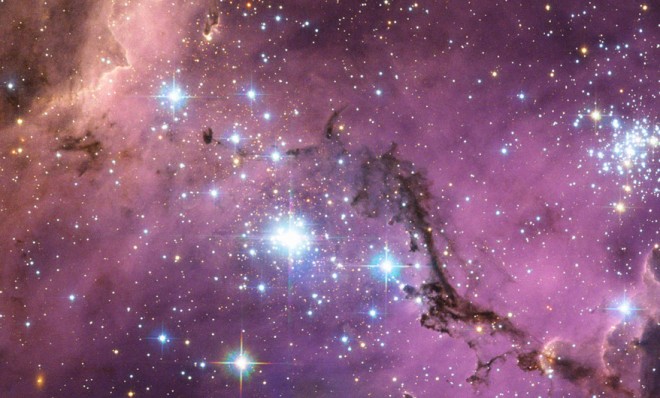Booze in space? The phenomenon that creates interstellar alcohol
Freezing temperatures are a key ingredient

As humans have known for thousands of years, all you basically need to brew booze are organic compounds like yeast and something with sugar in it, like grapes.
Now, despite our knowledge of terrestrial booze, it's long been a mystery how giant oceans full of alcohol form in certain corners of the universe. After all, biological organisms can't survive in space's vacuum. (As far as we know, anyway.)
But there are vast clouds, like Sagittarius B2, that have billions upon billions of gallons of alcohol floating in them. Most of it will kill you outright. But there is also plenty of ethanol, which is found in various concentrations in beer, wine, vodka, whiskey — you name it.
The Week
Escape your echo chamber. Get the facts behind the news, plus analysis from multiple perspectives.

Sign up for The Week's Free Newsletters
From our morning news briefing to a weekly Good News Newsletter, get the best of The Week delivered directly to your inbox.
From our morning news briefing to a weekly Good News Newsletter, get the best of The Week delivered directly to your inbox.
All of which begs the question: How do interstellar spirits form in the first place, especially where temperatures are incomprehensibly frigid, creating a low-energy environ inhospitable for complex organic molecules (like booze) in the first place?
The answer, according to a new study published online in Nature Chemistry, may be a phenomenon called "quantum tunneling."
As Popular Science explains, as it gets colder, chemical reactions slow to a crawl, since "there is less energy and fewer collisions between molecules to rearrange chemical bonds."
Space is pretty cold, and "chemical reactions get slower as temperatures decrease, as there is less energy to get over the 'reaction barrier,'" explains Professor Dwayne Heard, head of the School of Chemistry at the University of Leeds, in a press release. "But quantum mechanics tells us that it is possible to cheat and dig through this barrier instead of going over it."
A free daily email with the biggest news stories of the day – and the best features from TheWeek.com
This is what's called quantum tunneling.
For this experiment, scientists recreated space's extreme cold in a laboratory — minus 210 degrees Celsius — and observed a chemical reaction: Methanol was combined with an oxidizing chemical called the "hydroxyl radical."
Researchers were surprised to discover that not only did this create boozy methoxy molecules — which contain carbon, hydrogen, and oxygen — but the below-freezing simulation caused the reaction to happen 50 times faster than it would at room temperature. As New Scientist notes, this "quantum weirdness" generated a molecule that "shouldn't exist by the classic rules of chemistry."
So, in addition to stoking the collective imaginations of generations of stargazers, outer space may have just taught us how to create alcohol at very, very cold temperatures. "If our results continue to show a similar increase in the reaction rate at very cold temperatures," says Heard, "then scientists have been severely underestimating the rates of formation and destruction of complex molecules, such as alcohols, in space."
-
 Moon dust has earthly elements thanks to a magnetic bridge
Moon dust has earthly elements thanks to a magnetic bridgeUnder the radar The substances could help supply a lunar base
-
 World’s oldest rock art discovered in Indonesia
World’s oldest rock art discovered in IndonesiaUnder the Radar Ancient handprint on Sulawesi cave wall suggests complexity of thought, challenging long-held belief that human intelligence erupted in Europe
-
 Claude Code: the viral AI coding app making a splash in tech
Claude Code: the viral AI coding app making a splash in techThe Explainer Engineers and noncoders alike are helping the app go viral